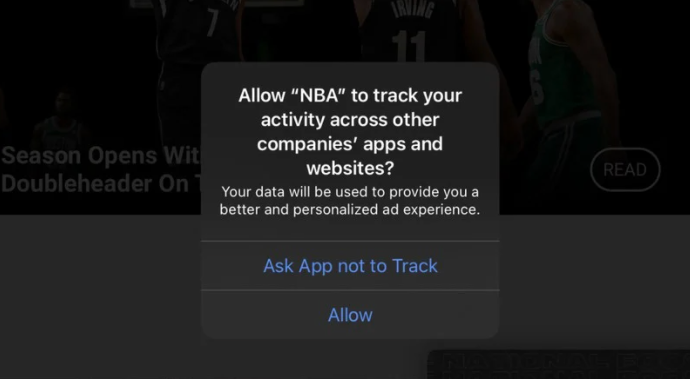
Apple introduced the iOS 14.5 App Tracking Transparency ATT, which was introduced on April 27, in other words, a structure where an app receives explicit permission from the user when tracking users across other webs and applications. At the same time, the Human Interface Guidelines were also updated to prohibit monetary payments to users who enabled tracking.
Under the new structure, all apps in the App Store are obligated to display a pop-up asking if they should be tracked or not. The popup doesn’t allow any other choices other than the two options: Require apps not to be tracked and permission. The new section on Accessing User Data in the Apple Human Interface Guidelines stipulates the rules. The ATT rules were also summarized in the design policy when requesting access rights such as personal data, microphones and cameras that had existed before.
Craig Federigi, senior vice president of software engineering at Apple, admits that Apple can only enforce the value of personal information on developers through App Store policies, which is completely impossible at the system level. In other words, it seems that iOS cannot automatically manage it on the server on the Apple side, and if the developer does not follow the rules, it will have to be kicked out of the App Store.
The new item reflects the opinion of Vice President Federigi. In other words, it is supposed to avoid ATT on the device, such as granting a misleading permission to Apple or restricting app functions without tracking permission, and prohibiting such implementation.
Notably, apps that give you money when you enable tracking are banned from the App Store. I wrote an outline as an incentive, but if I purposely try to track it, I can get a glimpse of my intention to never allow it by creating a fake screen, such as giving a $100 credit to use for the next shopping.
You can also implement a splash screen that tells you where tracking is being used before a pop-up that allows tracking with the iOS system. However, it is forbidden to display permission and misunderstand that it has already been approved, and it is obligatory to continue or to use it.
Developers and businesses that track users through the app receive personal information in exchange for targeted advertising. Conversely, users seldom press permission to give their personal information. Anyway, it is speculated that Apple plans to ban such transactions as well.
ATT is expected to be a big blow to targeted advertising, and Facebook, which is a major source of income, has campaigned against it in addition to full-page advertisements in newspapers. You can guess from Mark Zuckerberg’s fury how effective it will actually be. Related information can be found here.


















Add comment